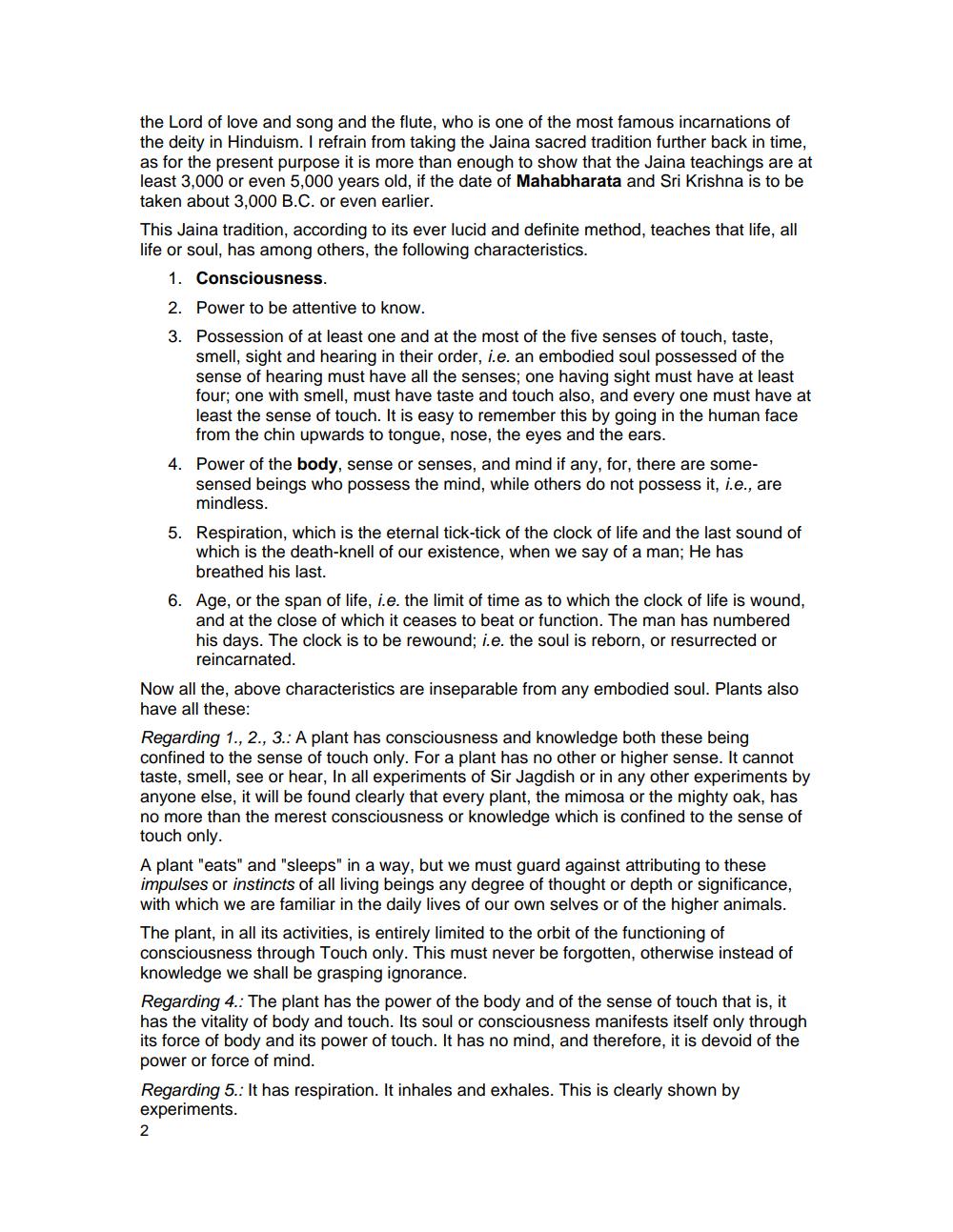Book Title: Jain Plantology Author(s): J L Jaini Publisher: J L Jaini View full book textPage 2
________________ the Lord of love and song and the flute, who is one of the most famous incarnations of the deity in Hinduism. I refrain from taking the Jaina sacred tradition further back in time, as for the present purpose it is more than enough to show that the Jaina teachings are at least 3.000 or even 5,000 years old, if the date of Mahabharata and Sri Krishna is to be taken about 3,000 B.C. or even earlier. This Jaina tradition, according to its ever lucid and definite method, teaches that life, all life or soul, has among others, the following characteristics. 1. Consciousness. 2. Power to be attentive to know. 3. Possession of at least one and at the most of the five senses of touch, taste, smell, sight and hearing in their order, i.e. an embodied soul possessed of the sense of hearing must have all the senses; one having sight must have at least four; one with smell, must have taste and touch also, and every one must have at least the sense of touch. It is easy to remember this by going in the human face from the chin upwards to tongue, nose, the eyes and the ears. 4. Power of the body, sense or senses, and mind if any, for, there are some sensed beings who possess the mind, while others do not possess it, i.e., are mindless. 5. Respiration, which is the eternal tick-tick of the clock of life and the last sound of which is the death-knell of our existence, when we say of a man; He has breathed his last. Age, or the span of life, i.e. the limit of time as to which the clock of life is wound, and at the close of which it ceases to beat or function. The man has numbered his days. The clock is to be rewound; i.e. the soul is reborn, or resurrected or reincarnated. Now all the above characteristics are inseparable from any embodied soul. Plants also have all these: Regarding 1., 2., 3.: A plant has consciousness and knowledge both these being confined to the sense of touch only. For a plant has no other or higher sense. It cannot taste, smell, see or hear, In all experiments of Sir Jagdish or in any other experiments by anyone else, it will be found clearly that every plant, the mimosa or the mighty oak, has no more than the merest consciousness or knowledge which is confined to the sense of touch only. A plant "eats" and "sleeps" in a way, but we must guard against attributing to these impulses or instincts of all living beings any degree of thought or depth or significance, with which we are familiar in the daily lives of our own selves or of the higher animals. The plant, in all its activities, is entirely limited to the orbit of the functioning of consciousness through Touch only. This must never be forgotten, otherwise instead of knowledge we shall be grasping ignorance. Regarding 4.: The plant has the power of the body and of the sense of touch that is, it has the vitality of body and touch. Its soul or consciousness manifests itself only through its force of body and its power of touch. It has no mind, and therefore, it is devoid of the power or force of mind. Regarding 5.: It has respiration. It inhales and exhales. This is clearly shown by experiments.Page Navigation
1 2 3 4
